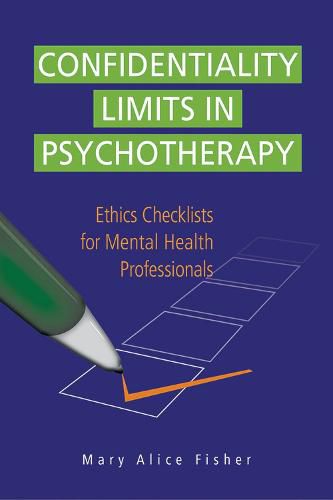Readings Newsletter
Become a Readings Member to make your shopping experience even easier.
Sign in or sign up for free!
You’re not far away from qualifying for FREE standard shipping within Australia
You’ve qualified for FREE standard shipping within Australia
The cart is loading…






Can therapists keep their patients’ secrets? Should they?
Psychotherapists are careful to safeguard information about their clients, but in some instances, they may be legally or otherwise compelled to disclose information, even without client consent. This little confidentiality manual walks readers through this complex topic, using the author’s easy-to-follow six-step Ethical Practice Model.
The checklist format enables therapists to inform themselves systematically about ethical options and relevant state and federal laws, so they can decide if, when, and in what respects they will limit their protection of clients’ confidences - and then discuss these limits with prospective clients. The chapters and case studies are full of useful information, making this the most convenient guide available to therapists on the topic.
Resource lists and appendices for further reading are included.
An essential tool not only for practicing therapists but also for ethics professors in clinical training programs, supervisors of students on internships and practica, and peer consultants, this handy reference belongs on every practitioner’s desktop
$9.00 standard shipping within Australia
FREE standard shipping within Australia for orders over $100.00
Express & International shipping calculated at checkout
Can therapists keep their patients’ secrets? Should they?
Psychotherapists are careful to safeguard information about their clients, but in some instances, they may be legally or otherwise compelled to disclose information, even without client consent. This little confidentiality manual walks readers through this complex topic, using the author’s easy-to-follow six-step Ethical Practice Model.
The checklist format enables therapists to inform themselves systematically about ethical options and relevant state and federal laws, so they can decide if, when, and in what respects they will limit their protection of clients’ confidences - and then discuss these limits with prospective clients. The chapters and case studies are full of useful information, making this the most convenient guide available to therapists on the topic.
Resource lists and appendices for further reading are included.
An essential tool not only for practicing therapists but also for ethics professors in clinical training programs, supervisors of students on internships and practica, and peer consultants, this handy reference belongs on every practitioner’s desktop